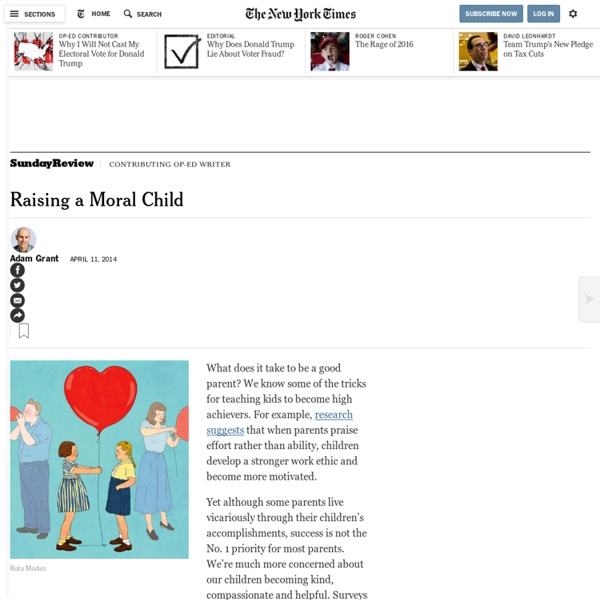Raising a Moral Child

Looking back: Finding Little Albert - Vol. 24, Part 5 ( May 2011)
Hall P. Beck, with Gary Irons, reports on a seven-year search for psychology’s lost boy In 1920 the British Psychological Society invited John Broadus Watson to address a symposium on behaviourism (Watson, 1920). Watson was disappointed that his university was unable to fund his crossing. In the winter of 1919/20, Watson and his graduate assistant, Rosalie Alberta Rayner, attempted to condition a baby boy, Albert B., to fear a white laboratory rat (Watson & Rayner, 1920). Despite its methodological shortcomings and questionable ethics (Cornwell & Hobbs, 1976; Samelson, 1980), the attempted conditioning of Albert is a staple in psychology textbooks and one of the most influential investigations in the discipline. After the last day of testing, Albert left his home on the Johns Hopkins campus. What was known about Albert From Watson’s writings we learned that Albert’s mother was a wet nurse in the Harriet Lane Home, a paediatric facility on the Hopkins campus. - Hall P.
Looking Back: The making and breaking of attachment theory - Vol. 22, Part 10 ( October 2009)
Barbara Tizard on John Bowlby – the origins of his ideas, their impact and his often underestimated willingness to revise them John Bowlby (1907–1990) first attained fame – some would say notoriety – in 1951, with the publication of his monograph Maternal Care and Mental Health. In it he presented evidence that maternal care in infancy and early childhood is essential for mental health. He claimed this as a discovery comparable to that of the role of vitamins in mental health. Bowlby’s own experience of maternal care seems to have been limited. After public school, he read medicine at Cambridge and University College Hospital, and did voluntary work in an analytically oriented school for maladjusted children, before starting a seven-year Kleinian psychoanalysis, and training as an adult psychiatrist at the Maudsley Hospital. The book made a tremendous impact on the general public. Some psychologists at once criticised Bowlby’s theories.
Parenting Style
Related:
Related:



